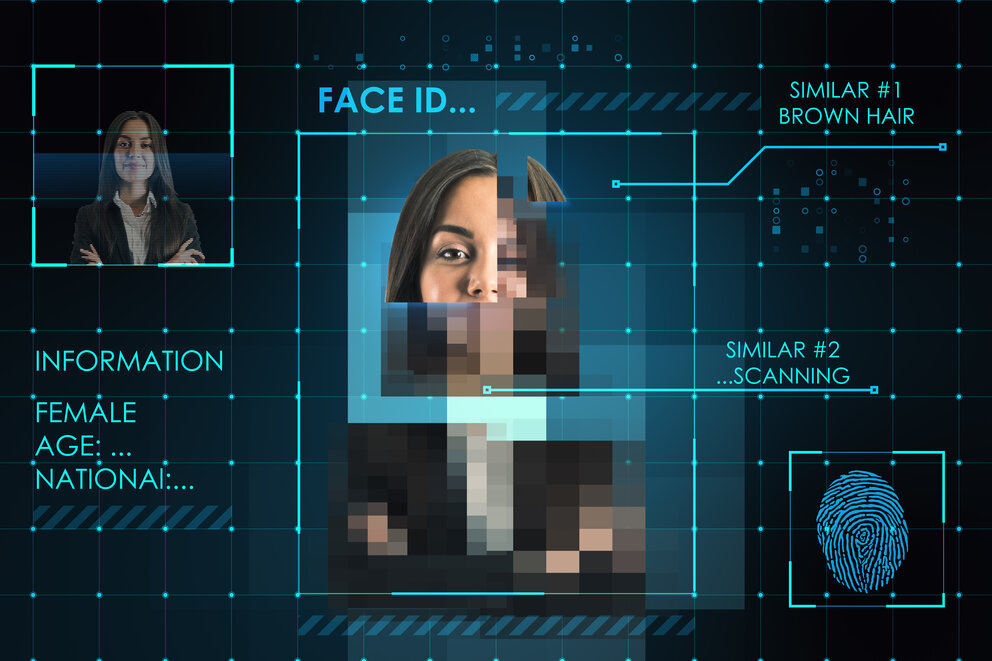Disinformation
The multi-layered threat to digital truth

As a recognised expert in IT forensics, Prof. Martin Steinebach is making a significant contribution to understanding and combating disinformation, a multifaceted phenomenon that describes the deliberate dissemination of false content in a news-style format, as distinct from unintentional misinformation. Disinformation refers to deliberately false or misleading information presented as news in order to generate profit or influence public opinion. Deepfakes, defined as media content, i.e. faces, voices or other elements in audio and video material that are either artificially created using generative AI or manipulated using AI technology, are a particularly dangerous tool of disinformation, as they make it increasingly difficult to distinguish between authentic and manipulated content. The technology behind these fakes is developing rapidly and is already capable of running on standard gaming PCs. The forensic analyses of Prof. Martin Steinebach and his team have been instrumental in establishing the truth in high-profile cases such as the Ibiza video and the Xinjiang Police Files, demonstrating the vital role of forensic media analysis in an age where digital manipulation is used for disinformation, fraud and defamation.
ATHENE projects and contributions from its "Disinformation" think tank
ATHENE Research Area "Reliable and Verifiable Information through Secure Media (REVISE)"
In this research area, ATHENE investigates methods for the reliable detection of manipulated media content. Innovative algorithms, automated detection systems and pattern analysis will be used to develop solutions that also contribute to bridging legal and technical gaps.
more about REVISE
Handout from the AI Security Expert Group of the Federal Office for Information Security (BSI): "Entwicklungen von KI und Desinformation – Erhöhte Vorsicht auf sozialen Medien!"
Authors: Volker Wittpahl, Martin Steinebach, Andrea Ibisch, David Kreft, Fabian Schild, Caroline Neufert
to the handout
Article in the GI-Radar Nr. 371 "Digitale Gewalt gegen Aktivist:innen: Risiken und mögliche Handlungsmöglichkeiten", 21.02.2025
Report from Laura Gianna Guntrum and Prof. Christian Reuter
to the article
Article in the GI-Radar Nr. 370 "Grauzonen des Wahrheitsgehalts: Wie Technologie im Umgang mit Desinformation unterstützen kann", 10.01.2025
Report from Dr. Katrin Hartwig and Prof. Christian Reuter
to the article
Article in the DuD • Datenschutz und Datensicherheit: "Erkennung von Desinformationen", January 2025
Author: Prof. Martin Steinebach
to the article
Guest article at Table.Briefings: “Desinformation: Wie Technologie Licht in die Graubereiche bringen kann”, 03.12.2024
Authors: Dr. Katrin Hartwig, Prof. Christian Reuter
to the article (Paywall)
Policy Paper "Desinformation in Messenger-Diensten", September 2024
Authors: Tahireh Panahi, Carolin Jansen, Amancay Ancina, Katarina Bader, Jeong-Eun Choi, Gerrit Hornung, Nicole Krämer, Lars Rinsdorf, Karla Schäfer, Inna Vogel, York Yannikos, Martin Steinebach
to the paper
Contribution on 3 sat nano: "Fake-Videos von Politikern: Die Macht von Deepfakes", 21.01.2024
mit Prof. Martin Steinebach
to YouTube
Podcast of the Hessischen Ministerium für Digitalisierung und Innovation: "Was sind Deepakes?", 26.04.2023
mit Prof. Martin Steinebach
to the podcast
Contribution in the Tagesschau: "Umgang mit Uiguren", 24.05.2022
to the contribtution
Article in the Spiegel "Worum geht es bei den Xinjiang Police Files?", 24.05.2022
to the article
Book "Desinformation aufdecken und bekämpfen", 2020
Herausgeber: Martin Steinebach, Katarina Bader, Lars Rinsdorf, Nicole Krämer, Alexander Roßnagel
to the book
Article in the Tagesspiegel Background: "DEEPFAKES - Wie das "Ibiza-Video" überprüft wurde", 23.05.2019
to the article (Paywall)
